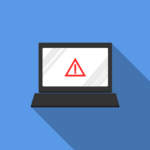Running a business is never easy, and the challenges only compound when you work from home. While you might avoid the costs of renting an office, you must make up for your lack of dedicated workspace with dedicated digital tools that allow you to run your business safely and effectively.
The following seven tools help you stay organized and productive while you manage your home-based business.
1. Trello
When you boil it down, a business is just a multitude of projects with different goals, for unique clients, and along diverging timelines. Larger businesses balance their projects by assigning distinct employees or teams to discrete tasks, but in your home-based business, you likely lack such manpower. Instead, you need a finely honed system to help you keep your projects in check ― and that system is Trello.
Trello is task manager software that allows you to create boards for your projects, scheduling each task, so you don’t forget anything. It is freemium software, which means you can adopt basic features without cost and upgrade to advanced service tiers as necessary, which will help you keep costs low.
2. DropBox
It is beyond risky to save your important business data on local devices only. At the very least, you could break your device and lose your hard-earned information; at worst, malware could steal that data, rendering your business utterly untrustworthy. It is imperative that you use some sort of cloud backup, and the easiest and most intuitive option is DropBox.
DropBox defines itself as a cloud-based file-sharing application, allowing you to share business documents effortlessly between devices. However, DropBox also functions as secure cloud storage, and it offers up to 2 gigabytes of space for free.
3. ID True
When you run a business, you often get calls from potential clients, vendors, contractors and more. And without knowing who exactly is calling you may be reluctant to pick up the phone if you’re busy and don’t have time for telemarketers. The best thing do to when you get a call from a number you don’t recognize is to run a quick reverse phone lookup, and to do that, you need ID True.
ID True is a public record search to help you identify unknown phone numbers, research strangers’ histories, and do more to understand the people interacting with your business. With a monthly account, you have access to unlimited phone searches, so you can see who is calling and decide if you want to answer, or you can return calls to people who neglect to leave messages.
4. Wave
Unless you run an accounting firm from your home, you might not be completely comfortable with the financial aspects of your business. Setting aside the headache of procuring payments from clients, juggling your business’s complex accounting is a serious chore. Wave can help.
Wave has been touted as the best accounting software available. As soon as you enter basic business data, the software generates a custom accounting dashboard targeting your business’s needs and activity. If you require advanced services, such as credit card or payroll processing, there is a nominal fee; otherwise, Wave is completely free.
5. Slack
Many home-based workers continue to work on teams ― but instead of sharing a space, you probably collaborate digitally. Unfortunately, thanks to time zones, personal schedules, differing projects, and more, digital collaboration is easier said than done, unless you use Slack.
Slack is a digital communication platform that includes dozens of endlessly useful functions, including group and direct messaging, conversation archiving, file uploading and sharing, and more. Plus, the platform is another freemium service, and even the most expensive paid version costs just $15 per month.
6. Calendly
One of the primary benefits of working from home is avoiding the incessant meetings that plague shared workspaces. Still, home-based workers sometimes do need to meet clients, partners, or others, but working those conferences into already hectic schedules can be a pain without Calendly.
Calendly absorbs information from users’ Google Calendars and generates potential dates and times of availability. Fellow team members and clients can reserve space on your calendar even if they aren’t Calendly users. Basic features are free, but advanced options cost just $15 per month.
7. Focus Booster
To work from home, you need confidence, independence, resourcefulness, and self-motivation, but most of all, you need fortitude. At home, distractions abound ― not just from comforts like the couch and television but even your work devices offer temptation to slack off. That’s why you need Focus Booster.
Focus Booster is a simple app that monitors your activity during working hours and analyses your habits, so you can better understand how you wile away your day. However, instead of encouraging you to work 24/7, Focus Booster helps you balance your work and personal time, so you feel productive without burning out. Unlike other services, Focus Booster isn’t free, but it is incredibly affordable with basic plans costing just $5 per month.








